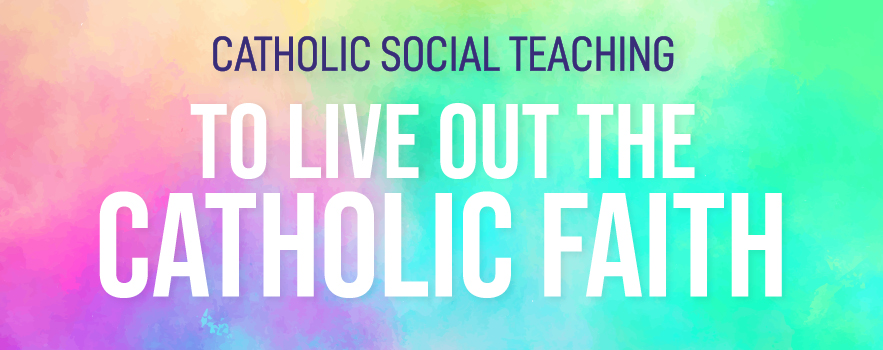No products in the cart.

Trinity Sunday is one of my favourite feast days. It reminds me that God is not a distant, lonely deity on a throne, but a communion of three divine persons who are always ready to welcome me into their embrace. This is one of the ways Catholics have interpreted the meaning of that great declaration, “God is love” (1 John 4:8,16). In the Holy Trinity, an eternal exchange of love takes place which creation participates in. This great dynamic of love is foundational to the Christian faith. It is the ultimate basis of the Church’s Catholic Social Teaching, to which this column is dedicated. There is no meaning to human dignity, if that dignity has not been conferred with divine love. Striving for the common good feels empty, if it is not done out of love.
But today, it can be difficult to enter into this beautiful reality. The coronavirus is still mutating and the pandemic is still raging. Most of us still cannot gather for Mass. When new restrictions are introduced, we must adapt despite great challenges. For those of us with family in other countries with weaker healthcare systems, there are also unique struggles. I have lost two relatives to the pandemic, one in April when I could not return in time because of travel restrictions. Soon after, my mother fell gravely ill. The distance, her isolation and the social stigma of being infected by Covid-19 meant that I was unable to receive reliable news about her at first. The anxiety was debilitating, and I felt I could not rely on faith because our desperate prayers had not saved my departed relatives; I could only hope desperately that good news, somehow, would come along. After several days, I finally received word that her vitals improved and she would live. Yet, that was not the end of the story. Hours before I began writing this, I received the sudden news that the pandemic had taken another relative. When would this string of tragedies end?
I asked myself then – What does Trinity Sunday mean at such a time? What does it mean to say that God is love for those who have lost? Hours before I began writing this, when I wondered if I could even write, a colleague offered to pray a full rosary with me, for me and my family. I was reminded then that I was not alone. I remembered the many family members, friends and colleagues who prayed for me and showed me kindness and solidarity. These memories helped me to realise an important reality — that I am loved.
So today, Trinity Sunday tells me that God is life-giving. The eternal exchange of love between the Father, the Son and the Holy Spirit overflows, poured out to give life to the entire creation that God destines for love. That dynamic of love is the ultimate reason for the existence of the human family, where each person is made in the image and likeness of God and endowed with infinite dignity. That love is the reason why, in good times and bad times, I can experience love from so many, who themselves have been loved first by God and other people. It is why I can have a true and reliable hope that I will never be alone.
For me, then, Trinity Sunday is not just about entering into the embrace of the Trinitarian God. It is also about my being part of a civilisation of love generated by the God who is Love. I am called, like you and every one else, to join the divine endeavour to let every person experience this divine love, so that others also can hope and believe they are not alone.
First published in Catholic News. Reprinted with permission.
